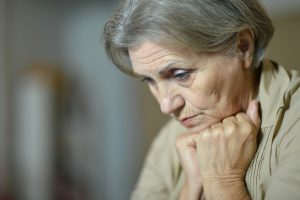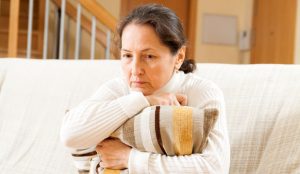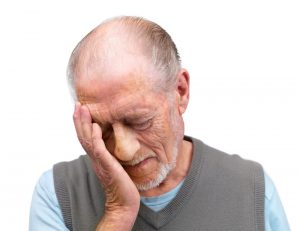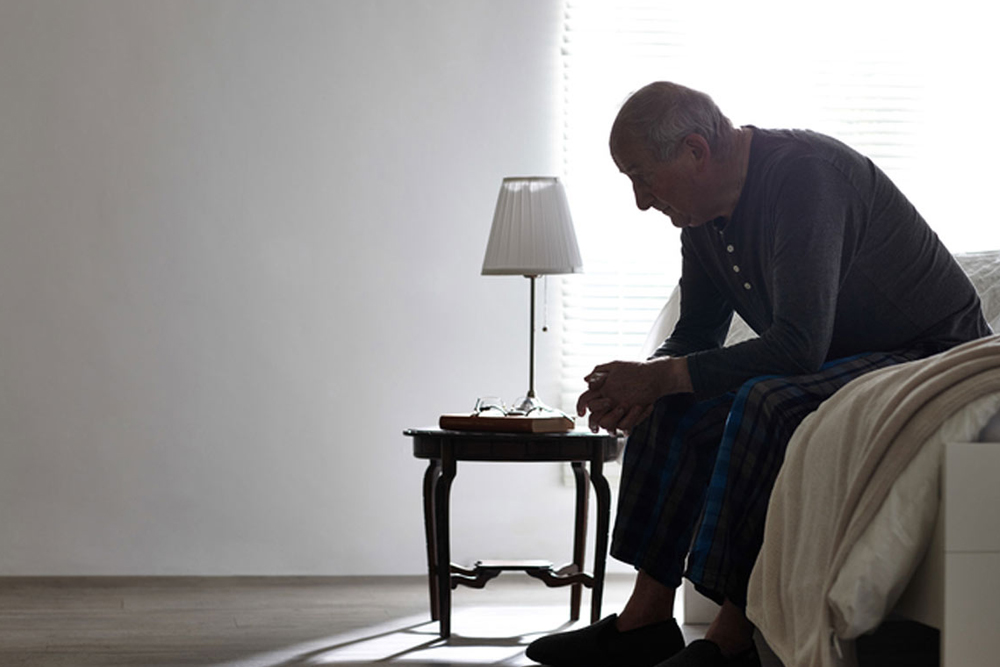The elderly are among the multiple individuals highly at risk of depression because they are likely to experience loss from the death of a spouse or siblings, or isolation due to relocation or retirement. On top of that, experiences of chronic pain and other physical illnesses may also trigger a depressive disorder.
Suicide among people aged 80 to 84 is even more than twice higher compared to the general population and that brings a cause for concern. Although depression may occur at old age, it is definitely not a normal condition. Depression treatment is highly necessary despite the imminent reluctance of the elders to go through one.
Depression Among Elders
 Clinical depression among 65-year-old adults and above is quite difficult to diagnose because the sadness they experience could possibly be caused by the circumstances of old age such as coping with environmental changes or with physical illnesses. The stigma on depression also leads them to deny the symptoms even to themselves.
Clinical depression among 65-year-old adults and above is quite difficult to diagnose because the sadness they experience could possibly be caused by the circumstances of old age such as coping with environmental changes or with physical illnesses. The stigma on depression also leads them to deny the symptoms even to themselves.
It is important to note that depression is a mental illness and not just ordinary feelings of sadness that usually come and go. Depression affects a person’s ability to function normally. Even simple things such as taking a bath, eating, or sleeping could be a great struggle for depressed people.
If the feelings of worthlessness or despair exist for at least two weeks, that is a red flag for a depressive disorder. For the elderly, depression increases their risk of death from heart attack and other illnesses, and with the number of prescriptions they currently have, rehabilitation is a great challenge for them. This is the reason why treatment is a must.
But before treatment, the adult must first be assessed and diagnosed. Some of them may not cooperate in this process because they think they are too old to live or that they have no one to live for so it is important to give them maximum support to encourage them to take back their life. There is a silver lining beyond the cost of treatment.
Symptoms of Depression Among Elders
The following are the symptoms to observe among elders who seem to struggle with depression. Anyone who shows them must be encouraged to seek professional help:
Physical Conditions
Elders may experience chronic pain with no probable cause and show sudden weight loss or weight gain. They may appear confused most of the time and move or talk slower than the usual pace.
Emotional State
Elders may appear to be more irritable or angry than usual. Most of the time, feelings of despair, self-pity, guilt, and hopelessness may manifest. This could result in trouble sleeping and appearing usually tired. There is also a strong projection of demotivation and inability to move with energy.
Behavioral Manifestations
Elders may stop enjoying the hobbies they used to engage themselves actively, and sometimes neglect their usual responsibilities such as hygiene and taking medicines. They may also resort to excessive use of alcohol and be more forgetful. The most alarming indication would be manifesting thoughts of suicide or death.
Causes of Depression Among Seniors
It is important to understand what causes depression among adults as these factors may also help in the diagnosis. Apart from the loss of a loved one and despair brought by relocation and retirement, the following may also contribute to the emergence of depression at old age:
Isolation and Fear
Elders could feel isolated because they live alone, they have lost some family and friends due to death and have no one to socialize with, they cannot drive anymore or even go outside due to physical limitations – an illness or disability. They may also be financially unstable and worry about finances.
History of Depression
 A history of depression in the family may explain why a person goes through depression as well, although this is not the case most of the time. When an elder has had suicide attempts previously in their life, that might also indicate that they have a depressive disorder.
A history of depression in the family may explain why a person goes through depression as well, although this is not the case most of the time. When an elder has had suicide attempts previously in their life, that might also indicate that they have a depressive disorder.
Medical Conditions
Dementia, a common illness at old age which causes memory loss, could bring bouts of depression to anyone who has it. Other illnesses such as Parkinson’s disease, cancer, and lupus may also cause depression. When an illness is life-threatening and disabling, it most likely brings depression to the patient.
Side Effect of Other Medications
Elders have slower metabolism compared to younger years which makes it difficult for their bodies to process medicines, and depression could be one of their side effects. Steroids, blockers, medicines for high cholesterol and hypertension, painkillers, and sleeping pills are some of the medicines that can trigger depression.
Medications For The Elderly
Antidepressants can be prescribed to elders; however, this must be supervised closely by a physician since their effect may not work in sync with other medications currently taken by the patient. Antidepressants such as amitriptyline and imipramine may also cause confusion and hypotension which increases the tendency of the patient to fall.
Electroconvulsive Therapy (ECT) is a procedure that is proven safe and effective among elders. It is an effective option when other medications do not work. This is done by stimulating the nerve cells in the brain using electrical signals. It may cause short periods of high blood pressure and pulse which is why close monitoring during treatment is required.
Therapy And Lifestyle For Treatment
 Therapy and a healthy lifestyle are the safest forms of treatment for the elders. Talk therapy can be very helpful in boosting the coping skills of elderly patients by allowing them to process feelings of loss and despair and eventually overcome them. Group therapy may also provide a venue for support which is necessary to combat isolation at old age.
Therapy and a healthy lifestyle are the safest forms of treatment for the elders. Talk therapy can be very helpful in boosting the coping skills of elderly patients by allowing them to process feelings of loss and despair and eventually overcome them. Group therapy may also provide a venue for support which is necessary to combat isolation at old age.
A healthy lifestyle includes a healthy diet, a routine that involves enjoying the sunlight, and activities that increase motivation in life such as learning a new skill or engaging in the community. These are simple things that help improve quality of life. It is also important to avoid occasions that cause distress such as the use of alcohol and staying up late.
Old age may not be filled with as much energy as the younger years but it does not mean that a fun and meaningful life is impossible at old age. Encourage your older adults to visit a psychiatrist so that there is an earlier examination and/or diagnosis of depressive disorder.





